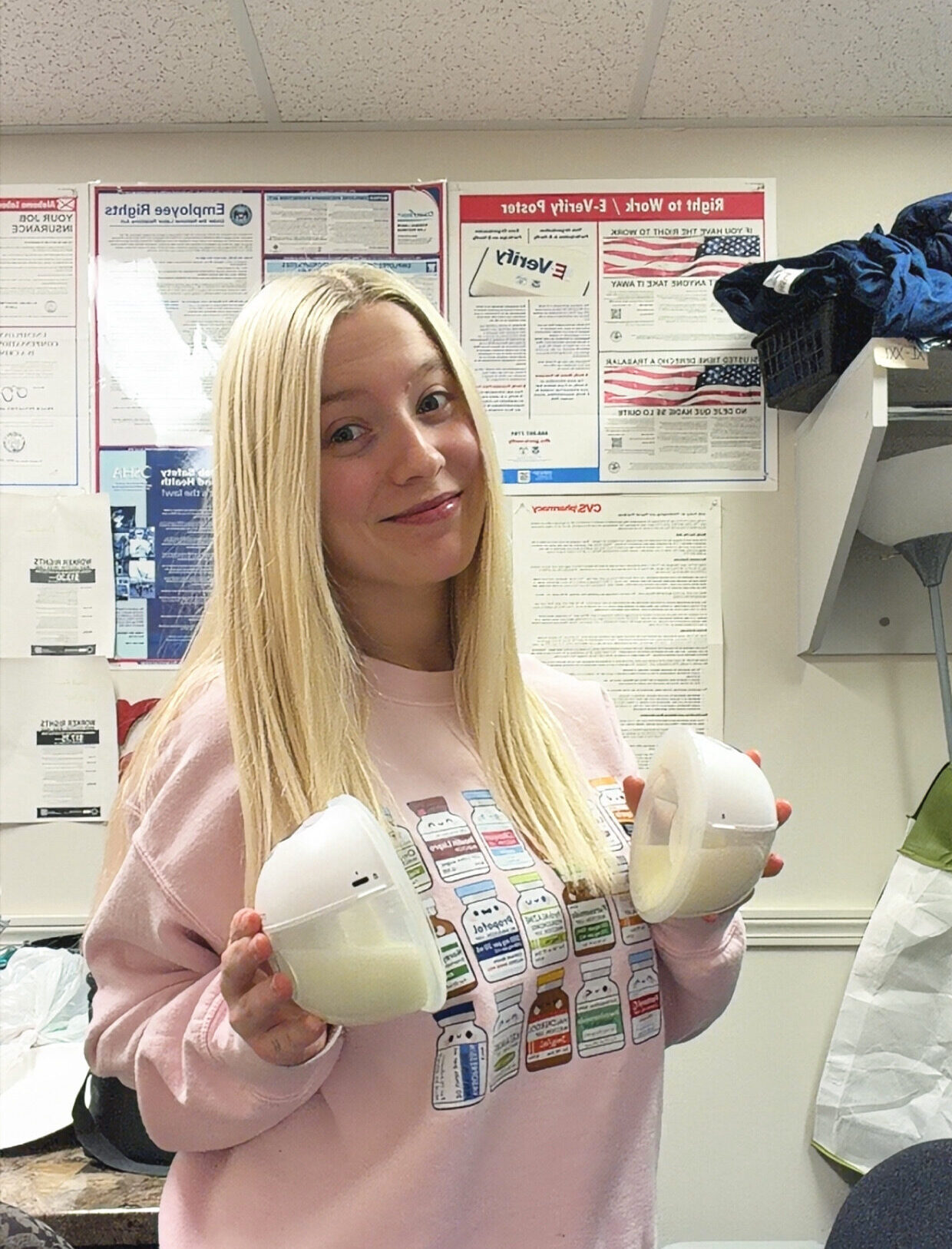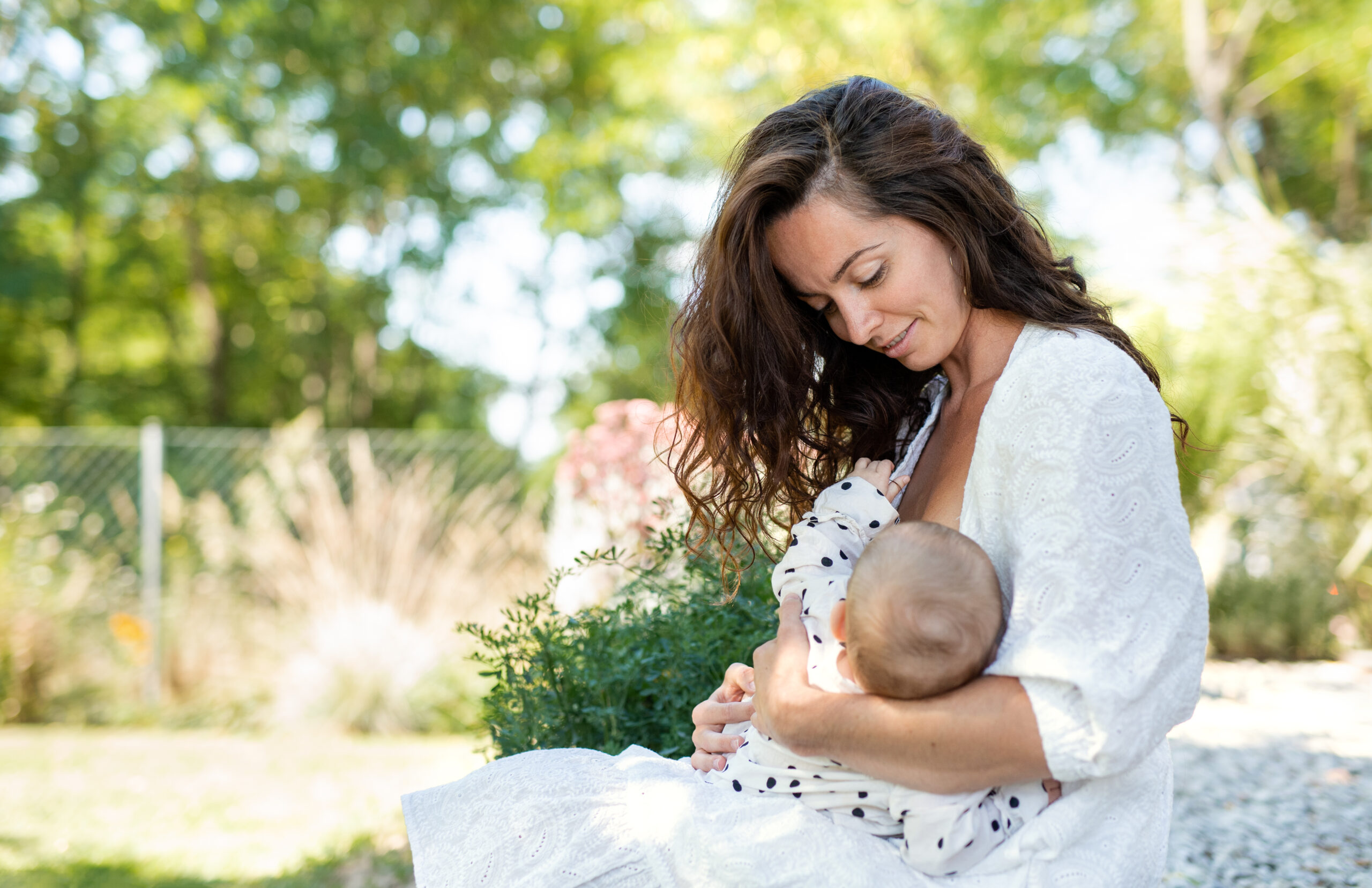Compiled by Infant Risk Center
Similar to other medications, pregnant and/or breastfeeding women have not been included in studies to determine how well COVID-19 vaccines work or how safe they are. Based on what we understand from similar vaccines, we believe the risks that come with vaccination will probably be low. Therefore, while we wait for more information, each mother and provider should discuss what choice fits their situation best. The risk and benefit of the vaccine should be compared to each mother’s individual risk for getting COVID-19 as well as how well she is expected to tolerate the disease.
Breastfeeding and the COVID-19 Vaccine
The use of these new vaccines in breastfeeding mothers has not been studied, largely because none of them have been approved for use. That said, it is our opinion that most of the COVID-19 vaccines are probably going to be quite safe for breastfeeding mothers and their infants. In these situations, physicians and breastfeeding mothers in consult, will have to weigh the relative risks of the vaccine to that of the infection with Corona virus in that specific mother.
At this time, none of the new vaccines are live or infectious. They are made of very few ingredients: the fragile mRNA, some fats to protect the mRNA for long enough for your body to respond to it, and some salts to make the shot sting less. There are NO preservatives!
All the mRNA vaccines thus far (produced by Pfizer and Moderna) are prepared by stimulating the human mRNA within the cell to build the “spike” proteins. In another set of vaccines, the structure of the spike protein from the virus is synthetically rebuilt by recombinant means and presented bound to another carrier protein to the patient in the injection. The body then creates antibodies to this “spike” protein.
The new mRNA vaccines (Pfizer and Maderna), give the muscle cell instructions to make a harmless piece of protein called the “spike protein.” The Spike protein is the mushroom-like protein on the surface of the virus that allows it to attach to the body’s cells. Once the mRNA instructions are inside the muscle cells, the cell uses them to make a lot of spike protein. After this protein piece is made, it moves to the surface of the cell. Next, the cell displays the Spike protein piece on its surface. Our immune system quickly recognizes that the spike protein doesn’t belong there and starts making antibodies. Thus, you become temporarily immune to the COVID-19 virus. The muscle cell then breaks down mRNA code and rids itself of these mRNA instructions.
At this time, we do not know how long this immunity will last. New data from the Pfizer vaccine suggest significant immunity to Covid-19 by 2 weeks.
At the end of the vaccination process, our bodies have learned how to protect against future infection. The benefit of mRNA vaccines, like all vaccines, is those vaccinated gain this protection without ever having to risk the serious consequences of getting sick with COVID-19. Also, you’re never exposed to a live virus in the vaccine.
As for breastfeeding, little or none of these vaccine components would ever reach the milk compartment, or even be transferred into human milk. Even if they were, they would simply be digested like any other protein by the infant. It is our opinion, that the present group of vaccines are probably going to be quite safe for breastfeeding mothers. The infant may even gain a small amount of maternal IgG in the breastmilk, which may even be beneficial.
Unfortunately, the safety of these vaccines will only be determined after significant use in patients.
Pregnancy and the COVID-19 Vaccine
For pregnant women, the Society for Maternal-Fetal Medicine (SMFM) has issued the statement below supporting the use of Covid-19 vaccinations in pregnant women. Below is a partial paragraph from their statement:
“In general, SMFM strongly recommends that pregnant women have access to COVID-19 vaccines in all phases of future vaccine campaigns, and that she and her healthcare professional engage in shared decision-making regarding her receipt of the vaccine. Counseling should balance available data on vaccine safety, risks to pregnant women from SARS-CoV-2 infection, and a woman’s individual risk for infection and severe disease. As data emerge, counseling will likely shift, as some vaccines may be more suitable for pregnant women. mRNA vaccines, which are likely to be the first vaccines available, do not contain a live virus but rather induce humoral and cellular immune response through the use of viral mRNA. Healthcare professionals should also counsel their patients that the theoretical risk of fetal harm from mRNA vaccines is very low.” Their entire statement is available at this link.
The American College of Obstetricians and Gyneocologists (ACOG) also released a statement supporting the vaccine in pregnancy and lactation. Here are the highlights:
- ACOG recommends that COVID-19 vaccines should not be withheld from pregnant individuals who meet criteria for vaccination based on ACIP-recommended priority groups.
- Individuals considering a COVID-19 vaccine should have access to available information about the safety and efficacy of the vaccine, including information about data that are not available. A conversation between the patient and their clinical team may assist with decisions regarding the use of vaccines approved under EUA for the prevention of COVID-19 by pregnant patients. Important considerations include:
- the level of activity of the virus in the community
- the potential efficacy of the vaccine
- the risk and potential severity of maternal disease, including the effects of disease on the fetus and newborn
- the safety of the vaccine for the pregnant patient and the fetus.
- While a conversation with a clinician may be helpful, it should not be required prior to vaccination, as this may cause unnecessary barriers to access.
The above opinions are basically supported by years of safety data with most but not all vaccines, and from studies worldwide. At this point, since many of the new vaccines do not contain live viruses and are not infectious, the InfantRisk Center supports the opinion from the SMFM and ACOG that most Covid-19 vaccines are probably safe for pregnant women. Ultimately, the risk of infection in that patient, must be weighted again the probable minimal risk of the vaccine.
The CDC has basically avoided answering this question, by the following statement:
“Evidence suggests that pregnant women are potentially at increased risk for severe COVID-19-associated illness and death compared to non-pregnant women, underscoring the importance of disease prevention in this population. Given the predominance of women of child-bearing potential among the healthcare workforce, a substantial number of HCP are estimated to be pregnant or breastfeeding at any given time. Currently, there are no data on the safety and efficacy of COVID-19 vaccines in these populations to inform vaccine recommendations. Further considerations around use of COVID-19 vaccines in pregnant or breastfeeding HCP will be provided once data from phase III clinical trials and conditions of FDA Emergency Use Authorization are reviewed.”
This article was originally published here.


















